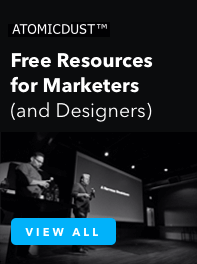Call Me Mentor: Asking All the Questions, Including “Why Me?”
Earlier this year, my friend James Walker (not that one, this one) asked me to do something I’d never done before. Granted, that isn’t a unique situation. There are literally infinite things I’ve never done – I’m a fairly normal guy living in the middle of the country with his wife and two dogs – but this is one of those things I’d actually thought about doing in real life.
Jim asked me to mentor some of his senior-level design students. He wanted to bring in working interactive designers to help guide the students’ capstone projects, and he thought I’d be a good fit.
Naturally, I was unsure about the idea of preparing younger, talented designers for the professional world I’d navigated (with varying degrees of success) since 2006. What did I have to offer? I’m not a graduate of a prestigious design program. I’m definitely not some kind of brilliant marketer. I’m the aforementioned normal guy, and not even a particularly academic designer.
Still, despite my hesitation, I asked Jim to explain what this “mentor” role would entail. That way, when I didn’t really qualify, I could turn him down and save face. Nervous? No. Unqualified.
Anyway, turns out I was qualified.
Shoot.
So I got started.
I met with my five students – Alyssa, Kathleen, Elizabeth, Karly and Lizzie – to discuss their projects, their goals and how they planned to accomplish them. I asked questions, and I listened a lot. Jim had explained that a large part of my role was to get students thinking bigger early in the process, eventually guiding them towards the ideas that were more viable given the semester’s timeframe.
So we started big. I asked about the stories they wanted to tell. I told them to consider how someone would encounter their site, and which other materials might be needed to promote it. I sent them articles and websites with the hope of expanding their view of the web from code and images to a rich, vibrant storytelling canvas.
Since these students weren’t overly familiar with designing websites, we spent a lot of time thinking through and talking about usability. How would a first-time user experience the site? How should the navigation work? What content groupings make the most sense?
Over the semester, I realized what I had to offer as a mentor. I’m no Saul Bass, my name likely won’t be written in design history books. But my perspective is still valuable for a student to encounter. It’s realistic, grounded in actually doing production client work forty hours every week. I offered them plenty of what-ifs, did-you-think-about-this-things and wow-that-looks-greats.
Flash forward to today.
Mentoring, it turns out, is nothing to be nervous about. On the contrary, my students are wonderful designers and students. They’ve just graduated, and you’d be lucky to hire them. Hint hint.
Students are encouraged to be creative, to apply lessons to projects that may or may not have similarities to the kind of work we designers do for our clients. They’re under pressure to impress their faculty and their peers, with less incentive to create work that is immediately client-ready.
I brought the grounded, realistic expectations that I’ve come to rely on in my day-to-day client work into that academic world, and challenged my students to think of things as realistically as possible. How would their project, despite being constructed of bits and bytes, live in the real world? Where would someone encounter their ideas, both online and offline? What is the call to action? That was the most valuable feedback I could offer.
My students say they found my advice useful. I’ll take their word for it. Their capstone projects turned out excellent, due entirely to their skills and perseverance. I found the entire experience refreshing: taking a step back from direct creative work and encouraging others to solve problems in creative ways, helping them when they’re at a crossroads and encouraging them to follow their instincts.
Looking for mentoring opportunities in St. Louis around design, copywriting or marketing?
ready+willing provides pro-bono marketing assistance to local nonprofits by assembling teams of professionals to volunteer their time and talent. Teams are made up of both industry veterans who serve as mentors and fresh young talent from the St. Louis area. Visit their website for more information.
In addition, AIGA is in the midst of developing a mentorship program to launch late this summer or early fall. They are looking for design professionals with five or more years of experience to serve as mentors to students and emerging designers. For up-to-date information on the program, subscribe to their mailing list.

